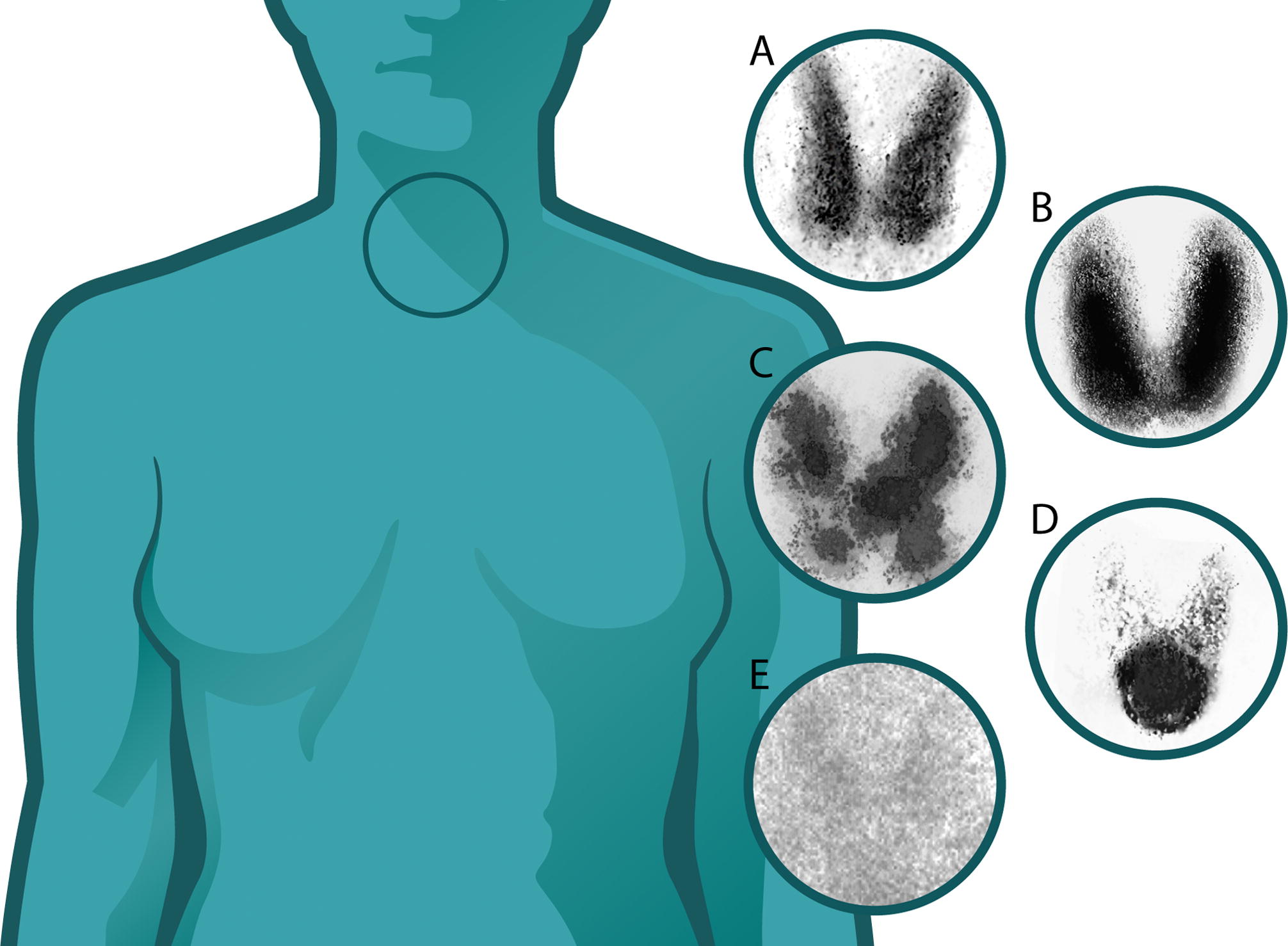Thyroid Uptake Scan
A thyroid uptake scan helps to evaluate the overall function of the thyroid gland. Other names for thyroid uptake and scan include Thyroid scintiscan and Technetium thyroid scan. The thyroid uptake scan test makes use of a radioactive substance and a scanning device to assess the thyroid gland. The scanner examines the parts of thyroid gland which have absorbed the radioactive substance. It is the most preferred diagnostic tool to determine the disorders of thyroid gland as it thoroughly detects the location, structure, activity and size of the gland. It is performed in two days as the test consists of two parts. A capsule that contains small quantity of radioactive material should be swallowed first. Thyroid uptake procedure is then performed within 18-24 hours after the material is fully absorbed by the thyroid gland. Read on to learn briefly about the thyroid uptake scan, its indications, risks and complications.
About Thyroid Scan and Uptake
A thyroid scan and uptake is a diagnostic tool that belongs to a branch of nuclear medicine imaging technique. Thyroid uptake is also known as radioactive iodine uptake test (RAIU). Although, it measures the function of thyroid gland; however, it does not utilize imaging technique. Moreover, Nuclear medicine is a kind of medical imaging that utilizes small doses of radioactive material to detect the thyroid function. It is an effective diagnostic tool that offers various benefits such as to determine and diagnose various types of diseases; to learn the severity of different disorders; to treat different cancer types and various other conditions like; gastrointestinal disorders, heart disease, neurological disorders, endocrine imbalance, and other body abnormalities. Most importantly, the procedures based on nuclear medicine detect the molecular action in the system and hence have an ability to detect the disorder during early stages. These procedures also have the potential to determine the patient’s outcome to therapeutic interventions.
The best advantage of these Nuclear medicine imaging procedures is that they’re noninvasive and do not induce much pain. These medical tests utilize radioactive materials for imaging, which are also referred to as radiotracers or radiopharmaceuticals. A radiopharmaceutical can be used in various forms as gas inhalation, swallowing, and in the form of injection based on the type of nuclear medicine scan. The material gradually gets deposited into any area or organ in the body that needs scanning. A special camera or an imaging device helps to detect the radiotracer emissions by forming images and with detailed information related to molecular activity. In addition, the thyroid scan and uptake provides detailed structural and functional information of the thyroid gland.
Indications of thyroid and uptake scan procedure
The thyroid scan is indicated to evaluate the shape, size, and position of the thyroid gland; while, the thyroid uptake is used to determine the thyroid gland function.
Patients with a past history thyroid cancer require a full body thyroid scan.
Both these imaging tests are indicated to determine the proper activity of the thyroid gland
It is used to diagnose various conditions of thyroid gland, such as cancer, tissue growths or nodules, hyperthyroidism or an overactive thyroid gland.
It evaluates the nature of a thyroid gland nodule
It has a potential to detect defective areas of gland such as inflammation, tissue growths or lumps (nodules), and swelling.
It determines the invasion (metastasis) of thyroid cancer to distant body sites.
It analyzes the gland changes post-operatively, or following a chemotherapy or radiotherapy
Benefits of thyroid and uptake scan
1. Nuclear medicine tests provide unique details about the structure and function, which can’t be detected by any other imaging tool.
2. The scan reveals valuable data for various disorders that is necessary for the diagnosis and reinforcement of an appropriate treatment. It is least expensive and is known to yield accurate details when compared to exploratory surgery.
3. Nuclear medicine diagnostic procedures involve negligible doses of radiotracer and can cause relatively low radiation exposure, thus reducing the radiation risk.
4. Diagnostic nuclear medicine procedures are not associated with long-term adverse effects due to low-dose radiation exposure.
Risks of thyroid and uptake scan
Radiotracer material can rarely impose the risk of mild allergic reactions.
Injection of a radiopharmaceutical can lead to redness and pain at the site of injection, which rapidly subsides after sometime.
Women should seek advice from a doctor in case of pregnancy or nursing.
Limitations of Thyroid and Uptake Scan
Women who are pregnant are contraindicated from undergoing the thyroid scan and thyroid uptake procedures to as the fetus is at risk of radiation exposure.
Women who are lactating newborn babies are also contraindicated from thyroid scan and reuptake tests as the radiotracer may get secreted via breast milk.
The procedure doesn’t produce high resolution image of body structures when compared to various other imaging tools.
>> Using The Bodies Natural Abilities <<
Filed Under: Thyroid Uptake Scan

